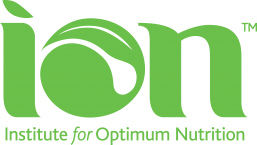What does the thyroid gland do?
The thyroid is a butterfly-shaped gland that lies just below the voice box. It produces thyroid hormones that have sweeping and profound effects on all body systems. It has important regulatory functions that affect many aspects of metabolism.
The main thyroid hormones are thyroxine (T4) and triiodothyronine (T3), which are made from an amino acid, tyrosine, and iodine molecules. T3 is the most active form of thyroid hormone. It is converted from T4 by enzymes which require selenium, zinc and copper as cofactors. Conversion can be negatively affected by deficiencies of these mineral cofactors, heavy metal toxicity (especially cadmium, mercury and lead), chronic illness, inflammation, diabetes, stress, compromised liver function and poor diet (eg excess carbohydrates).
Sometimes the body converts T4 to reverse T3 (rT3) to help conserve energy. Stress, adrenal fatigue, low ferritin levels, acute illness and injury, yo-yo dieting and chronic inflammation are all factors that may increase this process. rT3 can block T4 receptors and result in hypothyroidism even when T4 levels appear normal on testing.
Imbalances in thyroid function
There are number of imbalances that can arise, these include:
Underproduction of thyroid hormones (hypothyroidism / myxoedema)
Over production of thyroid hormones (hyperthyroidism / thyrotoxicosis)
Enlarged thyroid, also known as goitre
Nodules or lumps in the thyroid
Cancer
Let’s look at both hypothyroidism and hyperthyroidism, I see these a lot in my clinic, and nutrition can often be really helpful in supporting these conditions.
What is hypothyroidism?
‘Hypo’ literally means low or under and hypothyroidism is the term for an underactive thyroid gland. There are different reasons why someone might have an underactive thyroid including too few signals from other glands in the body that make the thyroid work, tired adrenal glands, too little active thyroid hormone being converted from the inactive form, or faulty thyroid hormone receptor sites. The end results are the same – too little thyroid hormone is received by the cells.
What are the causes of hypothyroidism?
There are many different causes including:
Nutrient deficiencies especially selenium, iodine, calcium, zinc, magnesium, manganese and boron and also B vitamins, vitamin A, vitamin C and iron
Environmental toxins including organophosphates, mercury, cadmium, lead, fluoride, and some medical drugs (high dose cortisones), tea, coffee, alcohol and excessive consumption of raw brassica family vegetables (cabbage, sprouts, etc.)
Major surgery (e.g. hysterectomy, tonsillectomy)
Pregnancy (more common with traumatic pregnancies or a number of pregnancies close together)
Glandular fever or other viral infection
Autoimmune disease, antibodies destroy thyroid follicles and block Thyroid Stimulating Hormone (TSH) receptors, preventing the thyroid from releasing normal amounts of hormones. Hashimoto’s thyroiditis is the commonest form of autoimmune hypothyroidism.
What are the symptoms?
There are many different symptoms of hypothyroidism, some people may only have a few, others many. There are some symptoms that are more common that others including:
Weight gain
Lowered body temperature – always feels cold
Or inability to regulate temperature - intolerance to heat and little sweating
Lack of energy
Fluid retention
Other symptoms include:
Deepening of the voice or hoarseness
Infertility, menstrual problems
Atherosclerosis (hardening of the arteries)
Poor resistance to infection
Loss of libido
Constipation and flatulence
Headaches
Depression
Skin problems
Loss of memory /ability to concentrate
Hair loss
Aches and pains
What is Hyperthyroidism?
Hyperthyroidism is basically the over-production of thyroid hormones. It is often as a result of Graves’ disease, an autoimmune condition which affects about 1% of the adult population. Autoantibodies inappropriately stimulate TSH receptors on thyroid follicle cells and this leads to the over-production of thyroid hormones. Other causes of hyperthyroidism include from benign tumours in the the thyroid gland or inflammation of the thyroid, which can both result in excess release of thyroid hormones. Pregnancy and the post-partum period is also a risk factor and can result in post-partum thyroiditis, which often resolves itself or may be the trigger for autoimmunity to develop.
What are the symptoms of Hyperthyroidism?
Irregular periods and infertility
Hyperactivity, anxiety and agitation
nervousness and irritability
Weight loss
Palpitations
Generalised muscle weakness
Vomiting and / or diarrhoea
Testing for Thyroid Function
Your GP can test your thyroid function via a blood test. A thyroid function test looks at levels of thyroid stimulating hormone (TSH) and thyroxine (T4). Blood tests for the active hormone triodothyronine (T3) are not routinely offered
A high level of TSH and a low level of T4 in the blood could indicate you have an underactive thyroid (Hypothyroid) whereas a low level of TSH and high levels of T3 and/or T4 would indicate an overactive thyroid (Hypothyroid). Further testing to look at levels of anti-thyroid antibodies can be done to assess if autoimmunity is an an issue.
Functional testing can be done to determine more information about what exactly the issues may be including looking at Total T4 and Free T4, Total T3 and Free T3, Thyroid Peroxidase Antibodies (TPO), Thyroglobulin Antibodies (TGA) and TSH Receptor Antibody (TRab). Testing the status of key nutrients involved in thyroid health is also really useful, any deficiencies or excesses can then be addressed.
Nutrition and Lifestyle Recommendations to help support the thyroid
Correct any nutrient deficiencies, in particular the thyroid gland requires adequate levels of B vitamins, vitamin C, selenium, calcium, zinc, magnesium, manganese, boron and iodine (caution must be exercised when taking iodine as too much can suppress the thyroid)
Avoid environmental challenges including:
fluoride in toothpaste (fluoride free toothpaste is available from good health food shops) and some tap water (have supply checked & ideally drink filtered or glass bottled water)
additives, preservatives, pesticides, fertilisers, food in plastic packaging - eat fresh, organic wholefoods where possible and store food in glass jars
reduce or avoid tea, coffee and alcohol consumption
avoid eating too many goitrogenic foods, food that are known to suppress thyroid function particularly if there is any iodine deficiency or when consumed raw, these include the brassica family (kale, cabbage, broccoli, cauliflower etc.) cooked brassicas should be fine, soybeans, pine nuts, mustard, turnip, millet, peanuts. Also soak any nuts or seeds you eat overnight to help breakdown enzyme inhibitors
Avoid/reduce consumption of wheat. In cases of autoimmune thyroiditis avoid gluten
Reduce stress. As the thyroid works on a feedback loop with the adrenals it is very important to manage stress levels and support adrenal health.
Take regular moderate exercise such as brisk walking, cycling or yoga
For specific thyroid support and to discuss specific supplements appropriate for you seek advise from a registered nutritional therapist





